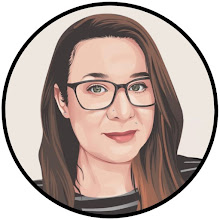"Yes, I have two." the woman replied. "It took me a very long time to conceive my first. I had considered adoption but then I got pregnant. He was my surprise baby. Then I had a second."
The woman who asked gives her a compassionate look and says "what a wonderful story. It just goes to show you that once you think all hope is lost, God finds a way."
Adoption = all hope is lost?
Here's where I clarify why I take note of these interactions in my everyday life. One response to me observing these things and pointing out what sentiments or underlying assumptions/biases there are in society about adoption is that someone could easily say "you listen for it to look for reasons to be offended." This is honestly the opposite of my nature. I like people; I try to find ways to like people I don't even initially get along with. I really like both of these women and I want to like them. The last thing I want to do is to be offended by either of them or by anyone. The reason I take note is because I want to learn how people think and talk about adoption. It helps me provide people with new points of view--something I can't do if I don't know what they already think. I want society to become more nurturing of people connected to adoption.
The woman, in the comment she made, was not referring to me or my adoption. It does not mean she thinks that my parents lost all hope of having what they really wanted and then turned to adoption as a last resort. But when the immediate reaction to someone almost having to adopt is "hope was almost lost" it shows that people equate adoption with being second best or a last alternative that God, for this woman, spared her from.
I was not the only person sitting there that day with an adoption connection. There was an adoptive mother there as well. She is from Russia and went against what might be considered acceptable in Russian culture and adopted older Russian children out of orphanages there. Adoption to her does not signify that all hope was lost. I did not tell my story or how being seen as second best makes me feel. I think it would have put someone, who was not intending at all to be hurtful, on the defense. I didn't need to because there was already another narrative there in the adoptive mother's story. This experience goes to show others and to remind me that people do want to care, learn more about people connected to adoption, and be respectful and nurturing--they just don't have the information to do so with. They won't know unless people connected to adoption start talking about it and make it a part of everyday conversation.
All individuals connected to adoption reading this blog--what tools have you developed to deal with hearing things that hurt your feelings (or your son/daughter/family member's feelings) or that aren't quite accurate when it comes to your community?
"It doesn't matter how tall your grandfather was--you still need to do your own growing." Abraham Lincoln.
Photo credit: antpkr


